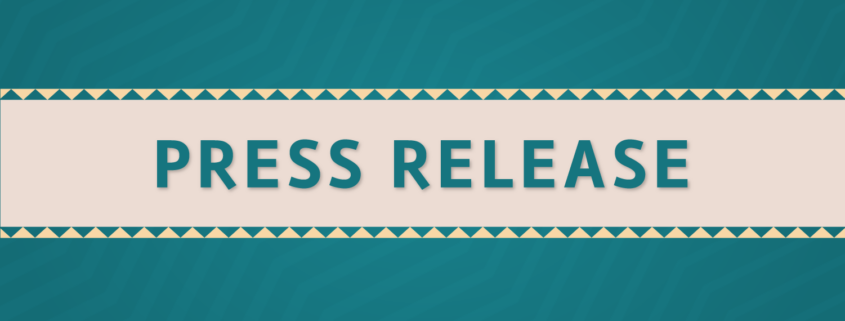NCUIH Urges Congress to Take Prompt Action on the U.S. Civil Rights Commission Broken Promises Report
Watch NCUIH Testify at Hearing View NCUIH Testimony
FOR IMMEDIATE RELEASE
Contact: Meredith Raimondi, 202-544-0344, mraimondi@ncuih.org
NCUIH Executive Director Francys Crevier Requested the House Subcommittee on Indigenous Peoples Address Chronic Underfunding
Washington, DC (November 20, 2019)— On November 19, 2019, the Subcommittee for Indigenous Peoples of the United States held an Oversight Hearing Reviewing the Broken Promises Report: Examining the Chronic Federal Funding Shortfalls in Indian Country. NCUIH Executive Director Francys Crevier, JD (Algonquin) testified before the Subcommittee and made several recommendations in response to the U.S. Civil Rights Commission “Broken Promises” Report.
“The Broken promises report, like many other well-intentioned reports and research, such as the IHS Urban Indian Needs Assessment and the Urban Indian Organization demonstration projects, raises awareness of these issues, but without a prompt true long-term commitment and subsequent actions to address these disparities, a report is only a report, and has little impact on the health status of our people. We ask Congress to treat this health system like the only one that you, your children and family have. We thank Chairman Gallego and Ranking Member Cook for holding this important hearing,” said NCUIH Executive Director Francys Crevier, JD (Algonquin).
In her testimony, Ms. Crevier emphasized that Congress has long recognized that the federal government’s obligation to provide health care for Native people off of reservations, declaring:
“The responsibility for the provision of health care, arising from treaties and laws that recognize this responsibility as an exchange for the cession of millions of acres of Indian land does not end at the borders of an Indian reservation. Rather, government relocation policies which designated certain urban areas as relocation centers for Indians, have in many instances forced Indian people who did not [want] to leave their reservations to relocate in urban areas, and the responsibility for the provision of health care services follows them there.”
“Data shows that reoccurring health problems are more acute for Natives living in urban areas than other populations. Urban Indians have greater mortality rates from chronic disease compared to all other populations, including diabetes, liver disease, tuberculosis and suicide,” added Ms. Crevier.
NCUIH made the following recommendations:
- IHS UIO parity for FTCA, 100% FMAP and the IHS-VA MOU
- Increase urban Indian line item budget to $81 million (currently it is less than 1% of the IHS Budget)
- Advanced Appropriations to prevent future devastation during shutdowns as shown through the NCUIH Shutdown Preliminary Report
More Information
Witness List
Panel I
- The Honorable Patricia Timmons Goodson (testimony), Vice-Chair, U.S. Commission on Civil Rights
- Dr. Anna Maria Ortiz (testimony), Director, Natural Resources and Environment, U.S. Government Accountability Office
- Rear Adm. Chris Buchanan (testimony), Deputy Director, Indian Health Service, U.S. Department of Health and Human Services
- Mr. Jason Freihage (testimony), Deputy Assistant Secretary for Management, Bureau of Indian Affairs, U.S. Department of the Interior
Panel II
- The Honorable Fawn Sharp (testimony), President, National Congress of American Indians
- The Honorable Lynn Malerba (testimony), Secretary, USET Sovereignty Protection Fund
- The Honorable Jonodev Chaudhuri (testimony), Ambassador, Muscogee Creek Nation
- Ms. Stacey Bohlen (testimony), Chief Executive Officer, National Indian Health Board
- Ms. Francys Crevier (testimony), Executive Director, National Council of Urban Indian Health
###
About the National Council of Urban Indian Health
The National Council of Urban Indian Health (NCUIH) is the national organization devoted to the support and development of quality, accessible, and culturally-competent health services for American Indians and Alaska Natives (AI/ANs) living in urban settings. NCUIH envisions a nation where comprehensive, culturally competent personal and public health services are available and accessible to AI/ANs living in urban communities throughout the United States. NCUIH is the only organization that represents all 41 Urban Indian Organizations (UIOs) federally funded by the Indian Health Service.






Leave a Reply
Want to join the discussion?Feel free to contribute!